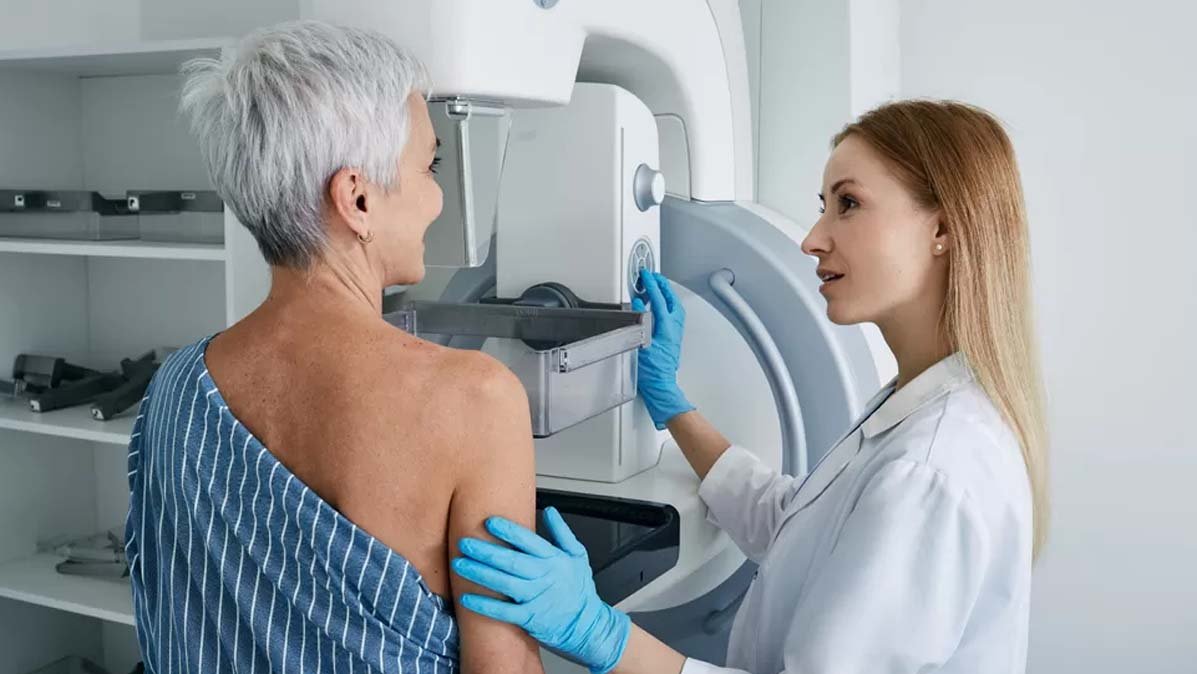
Tens of thousands of women in England could benefit from a drug that helps prevent breast cancer.
Anastrozole, used for many years to treat the disease, has now been licensed as a preventative option.
Recent trials show the drug can reduce the incidence of breast cancer by almost 50% in post-menopausal women at moderate or high risk of the disease.
Charities said it was “a major step forward” for women with a significant family history of the cancer.
An estimated 289,000 women could be eligible for the drug.
And if one in four of these come forward, it could help prevent 2,000 cases of breast cancer in England, NHS England says, which could save the health service £15m in treatment costs.
Any woman worried about having a higher than normal risk of breast cancer can contact their GP, who can refer them to a specialist for a full risk assessment taking into account family history.
Anastrozole is off-patent, which means more than one company can make it and the drug can be distributed fairly cheaply – around 4p per day per user.
First recommended as a preventative option by the National Institute for Health and Care Excellence, in 2017, its use in this way has now been licensed by the Medicines and Healthcare products Regulatory Agency as part of NHS England’s medicines-repurposing programme.
Lesley-Ann Woodhams, 61, has just completed a five-year course of one tablet a day.
Taking it was “an easy decision, as I’d watched my mum battle breast cancer”, she says.
“I could live a life without constantly worrying or giving a thought to what could be if I’d developed breast cancer,” Lesley-Ann says.
“It really was a gift – it gave my family and myself peace of mind and, more importantly, a continued future to look forward to.”
Prof Peter Johnson, NHS England’s national clinical director for cancer, told BBC Radio 4’s Today programme the drug was a “very attractive” prospect for those at high risk of breast cancer.
He said research indicated it was more effective at protecting against the disease and had fewer side effects than tamoxifen, which is already available as a preventative treatment.
“People have been particularly concerned about blood clots and also in some cases the development of endometrial cancer [when taking tamoxifen]. Anastrozole doesn’t seem to do that so it’s a more attractive idea,” he said.
But there is still the risk of some side effects from the drug, which can resemble symptoms of the menopause. The most common include:
hot flushes
feeling weak
pain or stiffness in the joints
arthritis
skin rash
nausea
headache
osteoporosis
depression
Patients suffering from side effects should speak to their doctor or pharmacist.
Anastrozole works by blocking an enzyme called aromatase to reduce the hormone oestrogen.
The treatment is taken as a 1mg tablet, once a day for five years. The protective effect lasts for years after a woman has stopped taking the drug, officials said.
Baroness Delyth Morgan, chief executive at Breast Cancer Now, said: “The extension of anastrozole’s license to cover it being used as a risk-reducing treatment is a major step forward that will enable more eligible women with a significant family history of breast cancer, to reduce their chance of developing the disease.”
Breast cancer is the most common cancer in England, with more than 47,000 people diagnosed each year.
Eight out of 10 of those cases are diagnosed in women aged over 50.
Women with a mutation in one of the BRCA genes are at risk of developing breast cancer and ovarian cancer.
Most women in the UK have a 15% chance of developing breast cancer in their lifetime, but that significantly increases if you have the mutation.
Out of every 100 women who have a BRCA1 gene mutation:
65 to 85 will develop breast cancer in their lifetime (65 to 85% lifetime risk)
40 to 63 will develop ovarian cancer (40 to 63% lifetime risk)
Out of every 100 women who have a BRCA2 gene mutation:
40 to 85 will develop breast cancer in their lifetime (40 to 85% lifetime risk)
10 to 27 will develop ovarian cancer (10 to 27% lifetime risk)
Women with BRCA mutations are also more likely to develop breast cancer at a younger age.
If you have a family history of cancer, you can have a genetic test to find out if you have inherited these genes.
Health Minister Will Quince said he was “delighted” the drug had now been approved to “help prevent this cruel disease”.
“We’ve already seen the positive effect anastrozole can have in treating the disease when it has been detected in post-menopausal women and now we can use it to stop it developing at all in some women,” he added.
NHS chief executive Amanda Pritchard says she hopes that licensing anastrozole “represents the first step to ensuring the risk-reducing option can be accessed by all who could benefit from it”.
 Weekly Bangla Mirror | Bangla Mirror, Bangladeshi news in UK, bangla mirror news
Weekly Bangla Mirror | Bangla Mirror, Bangladeshi news in UK, bangla mirror news







